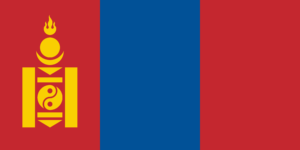On December 3, 2015, the Parliament of Mongolia adopted the updated version of the Criminal Code. The law will come into effect on September 1, 2016. We will briefly outline the primary provisions as they relate to leveling penalties on legal entities.
Currently, in case a legal entity commits a breach of applicable laws, including the Company Law, Taxation Law and Land Law, the company will be subject to administrative liability and the company’s management will be liable to pay for damages caused to the company.
Under the Criminal Code, there was previously no provision assigning legal liability to a legal entity. In this circumstance only physical persons were able to be subjected to liability.
This has been amended as follows: If certain crimes specified in the Criminal Code are committed for and on behalf of legal entity or in its interest, the person which committed the crime will be excused from punishment and the legal entity itself will be subjected to the punishment. Additionally, if the act is considered a crime, punishments will be increased and additionally compulsory measures will be applied.
Chapter 9 of the law states types of punishments for the legal entity. Depending on types of crimes specified in the special part of the Criminal Code, the legal entity will be subjected to the following punishment: fine, deprivation of rights and potentially dissolution.
- Fine: A legal entity will be fined by an amount equal to 10,000 – 400,000 units. 1 unit is equal to 2,000 Mongolian tugrugs (approximately USD $10,000 -400,000 at current exchange rates);
- Deprivation of rights: A legal entity’s right to carry out one or more operations may be restricted for 1-8 years;
- Dissolution: In cases of serious violations, a legal entity may be dissolved, a court will decide matters regarding the confiscation of assets and distribution in compensation for damages incurred due to the crime and transferring the remainder to the state.
Globally, in countries such as USA, Australia, Canada, India, French, Switzerland, New Zealand, Netherland, Austria, Hong Kong and Scotland, a legal entity is subjected to criminal liability. In countries including Germany, Greek, Hungary, Mexico and Sweden, a legal entity is subjected to administrative liability. In Brazil, Bulgaria, Luxembourg and Slovak, a legal entity is not subjected to liability.
Generally, there are 2 forms of a criminal liability which may be imposed on a legal entity: derivative and institutional liability. The derivative liability is divided into i) liability assumed for actions of others and ii) equality liability.
For the liability assumed for actions others, the company assumes a criminal liability for the actions of any its employees.
For the equality liability, the company only assumes liability for the actions of persons at at least managerial level.
According to the institutional liability, the company assumes criminal liability independently on the basis of its policy, rights, operations and approach.
In the Criminal Code of Mongolia as revised, the principle of derivative equality liability will apply.


